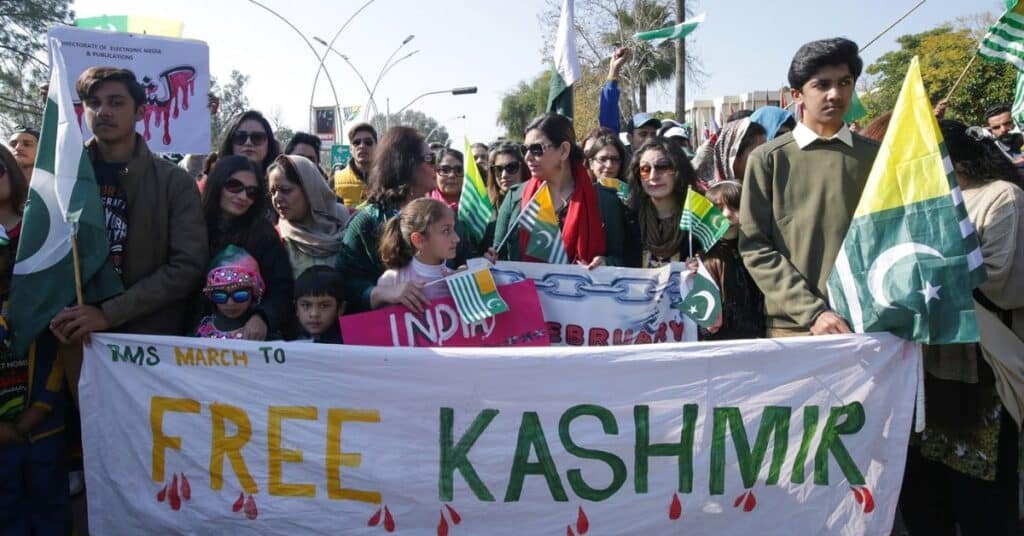PESHAWAR: The annual Ulema and Mashaikh Conference for Muharram-ul-Haram unanimously supported a code of conduct for Muharram and vowed to promote religious harmony and unity among different schools of thought.
The conference was held at the Council of Islamic Ideology headquarters in Islamabad. The meeting was chaired by the Chairman of the Council, Allama Dr. Raghib Hussain Naeemi, while the Federal Minister for Religious Affairs, Sardar Muhammad Yousaf, participated as the chief guest.
The conference brought together renowned religious scholars and spiritual leaders from all schools of thought across the country. During the session, the participants unanimously endorsed a Code of Conduct for Muharram based on the principles laid out in the Paigham-e-Pakistan initiative.
The scholars collectively emphasised that upholding the Constitution of Pakistan and safeguarding the country’s Islamic identity is a shared responsibility of every citizen. They categorically condemned any form of armed resistance against the state, declaring it an act of rebellion. The use of religion for spreading hate speech, issuing takfir (declaring others as non-Muslims), or making false accusations was firmly rejected, noting that such matters fall solely within the jurisdiction of the courts.
Declaring individuals or institutions as infidels, including the security forces, was denounced in the strongest terms. While everyone has the right to express their beliefs, no one is allowed to impose them on others by force. The scholars made it clear that no individual or group will be allowed to incite violence or spread sectarianism. The participants reaffirmed their unanimous respect for the sanctity of Prophet Muhammad (PBUH), his companions, the Ahl-e-Bait, and the mothers of the believers.
They also recommended incorporating teachings on respectful disagreement and dialogue into the educational curriculum. Special emphasis was placed on the rights of women, children, the elderly, and transgender individuals, considering their protection a moral and religious obligation. The scholars called for a ban on harmful cultural practices such as child marriage, Vani, Watta Satta, and marriages according to the Qur’an.
The participants described Muharram as a sacred month symbolising unity, patience, and sacrifice. They urged all sects to perform their religious rites peacefully and according to their beliefs, without promoting hatred or provocation. A public appeal was made for all citizens to play an active role in maintaining law and order during the holy month.
In addition to national concerns, the conference addressed global issues. The scholars strongly condemned the ongoing Israeli aggression in Gaza, describing it as a gross violation of international human rights. They also denounced the Israeli attacks on Iran as breaches of Iranian sovereignty and international law. Pakistan’s official stance on both Palestine and Iran was fully supported.
The success of Operation Bunyan al-Marsous and other national security efforts was acknowledged with gratitude. The participants paid tribute to the Pakistan Armed Forces, security institutions, and the sacrifices of the country’s martyrs and veterans. The scholars pledged full cooperation with the government and state institutions in countering any threats or conspiracies against the nation.
Notable religious leaders who attended the conference included Hafiz Tahir Mehmood Ashrafi, Qari Muhammad Hanif Jalandhri, Maulana Zahid Al-Rashdi, Maulana Ahmed Ludhianvi, Allama Arif Wahidi, Allama Shabbir Hassan Maisami, Allama Muhammad Hussain Akbar, Maulana Fazl-ur-Rehman, Shaikh Anwar Ali Najafi, Pir Naqeeb-ur-Rehman, Allama Ziaullah Shah Bukhari, Pirzada Muhammad Junaid Ameen, Maulana Abdul Haq Thani, Nasir Abbas Shirazi, and many others.
The conference concluded with a strong consensus on continuing such collaborative efforts in the future, promoting religious harmony, national unity, and peaceful observance of Muharram.
Read also: Imamia Jirga delegation meets KP Governor to discuss Muharram security arrangements





